Are you curious about what exactly vegan shoes are and where to buy them? Read on for the full scoop.
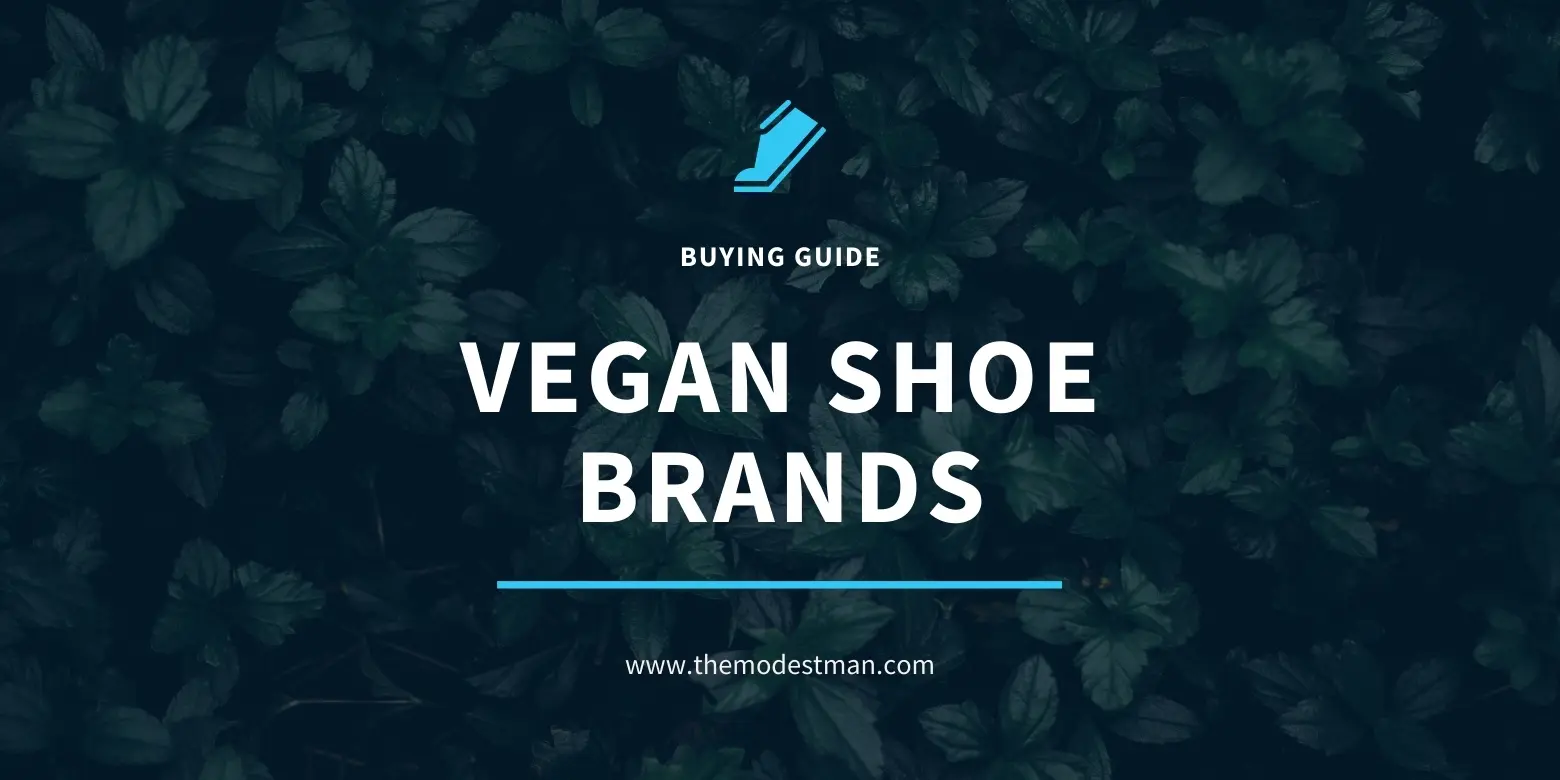
One of the fastest growing, and hottest, fashion trends is vegan footwear. Whether you are looking for casual shoes, even flip flops, high-performance shoes like
In fact, shoes dominate the vegan fashion industry, accounting for 73% of all vegan fashion purchases. It’s projected to reach $85 billion by 2025, and it’s growing faster than any other niche.
What exactly are “vegan” shoes? There is the obvious answer: no animal products were used in the manufacturing of the shoe. It also means there was no animal testing.
The most blatant product banned from vegan shoes would be leather, but the definition also includes wool, silk and many glues which can contain casein, gelatin or other animal derivatives.
Traditionally, glue was made from the collagen of animals such as horses, pigs and cows. Luckily, synthetic glues have evolved and now cost less, yet have higher quality and consistency than animal-based glues. Most shoe manufacturers today use synthetic glue.
Not all companies explicitly state that their glues don’t contain animal by-products; however, the likelihood is they don’t. All PETA certified companies are completely vegan, as well as some companies that explicitly guarantee their shoes as vegan.
What are Vegan Shoes Made Out Of?
Going vegan has had different implications depending on the type of shoe.
It’s durable, waterproof, breathable, molds to the foot, while being stylish and sleek. Early attempts at vegan footwear were none of these things. – poor quality, clunky, cheap looking, not breathable, environmentally unfriendly, and short lasting.
There are many names for faux leather: naugahyde, durabuck, NuSuede and Hydrolite. These materials, and most vegan shoes, were originally made from some combination of Polyurethane (PU) or Polyvinyl Chloride (PVC).
PVC is firm plastic, but when phthalate chemicals are added, it becomes more pliable. Unfortunately, it’s also associated with dioxin, a carcinogen. PU is bonded to a cotton backing and creates a leathery appeal.
Chemical solvents are used to liquefy vinyl. All of these materials are created out of petrochemicals and not environmentally friendly. PU is slightly better than PVC, but still problematic. They are energy intensive, require toxic chemicals to produce, and are linked to health problems.
The advantages to using PVC and PU are that they look like leather and are inexpensive to produce. They hold color and designs easily, are water resistant, easy to clean, and quality materials can be light and thin. Compared to leather, there is much less waste.
Leather, molds more easily to the foot so it doesn’t take as long to break in a new pair of shoes. Also, older versions of faux leather made from plastics tended to tear at stress points where it bends, and rubbing may wear it away. They don’t provide warmth and aren’t really biodegradable.
Faux leathers have improved. Today they are breathable and anti-bacterial so your feet won’t smell, and many manufacturers now use a variety of plant-based materials for their vegan shoes.
Aside from cotton canvas, hemp or linen, uppers may be made from recycled PET plastic (very often found in
New materials are being created from pineapple, coconut, corn, castor oil, apple peels and cores, mushrooms, kelp, cork, rubber or other plant-based materials. Soles may be made from rubber (often recycled) or recycled resin.
Vegan suede is made from synthetic microfiber fabric which is breathable, lightweight, flexible, durable, and easy to clean. One brand of faux suede, made from recycled PET plastic, is Dinamica. Manufactured in Italy, it is the fabric of choice for Jaguar and Mercedes Benz.
An added bonus is that it doesn’t watermark like real suede. Many of the companies profiled also offer shoes for women and children, accessories (bags, belts and wallets), and even clothing and housewares.
Also, their vegan sensibilities mean that they are interested in ethical practices, sustainability, fair trade and being eco-friendly.
Vegan Sandals & Casual Shoes
You can’t get more casual than flip flops or sandals, and the following brands offer great vegan options.
OluKai
OluKai creates Hawaiian inspired footwear that pays close great attention to anatomically fitting your feet. They feature a Drop-In Heel® that offers both shoe and slip-in functionality.
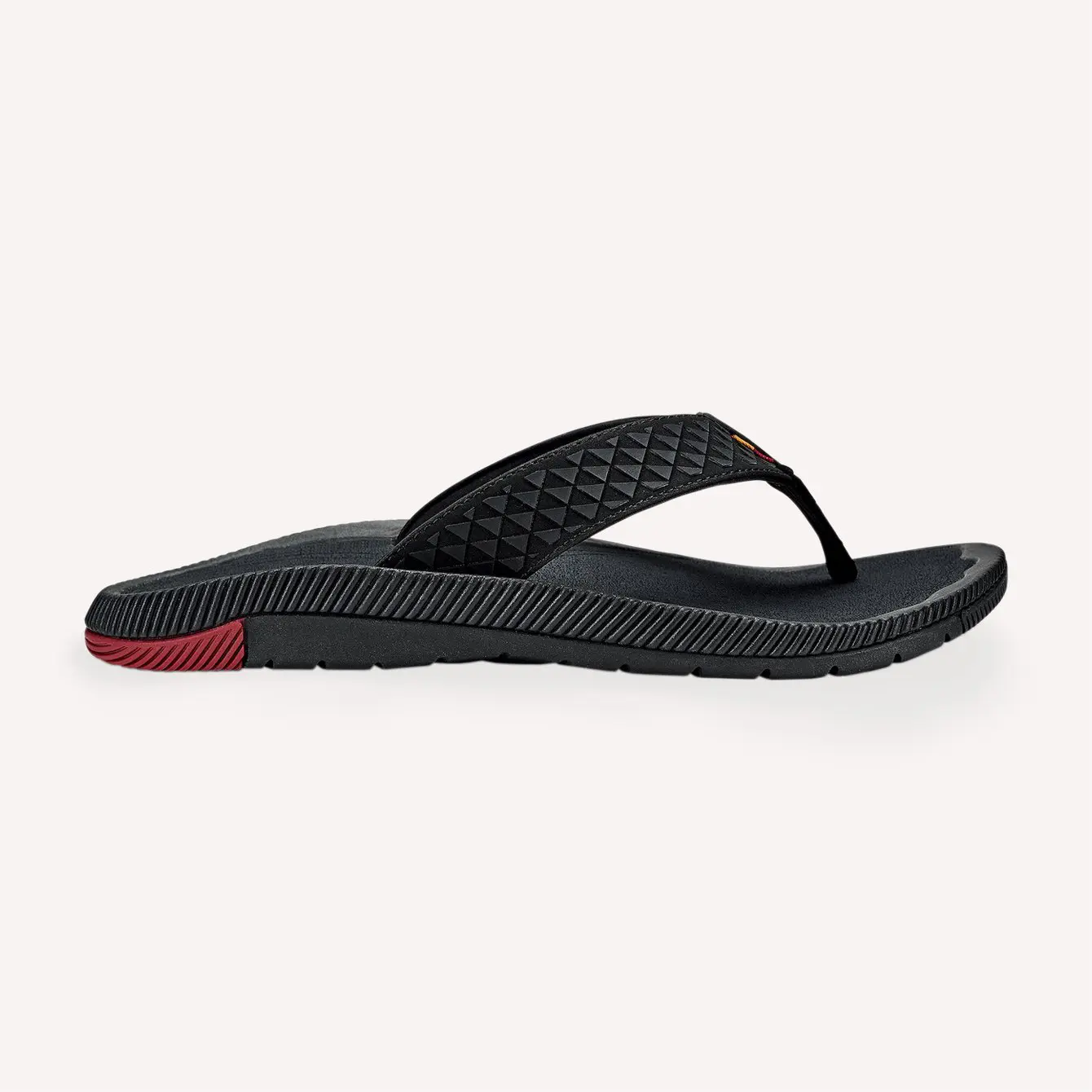
They have a dual-density PU footbed with a gel insert and microfiber cover, molded EVA midsole and non-marking rubber soles that make walking feel like a barefoot stroll on the beach.
Their mesh shoes and some flip-flops are vegan (including the Dri-Lex lining designed for active and casual lifestyles). A great deal of scientific planning goes into the construction of these seemingly simple shoes. They also offer
Indosole
Indosole publicizes themselves as the sole with a soul. Discarded tires are repurposed for the soles of their slides and flip flops. The company was started by an avid surfer who was shocked at the quantity of pollution on Bali’s beaches.
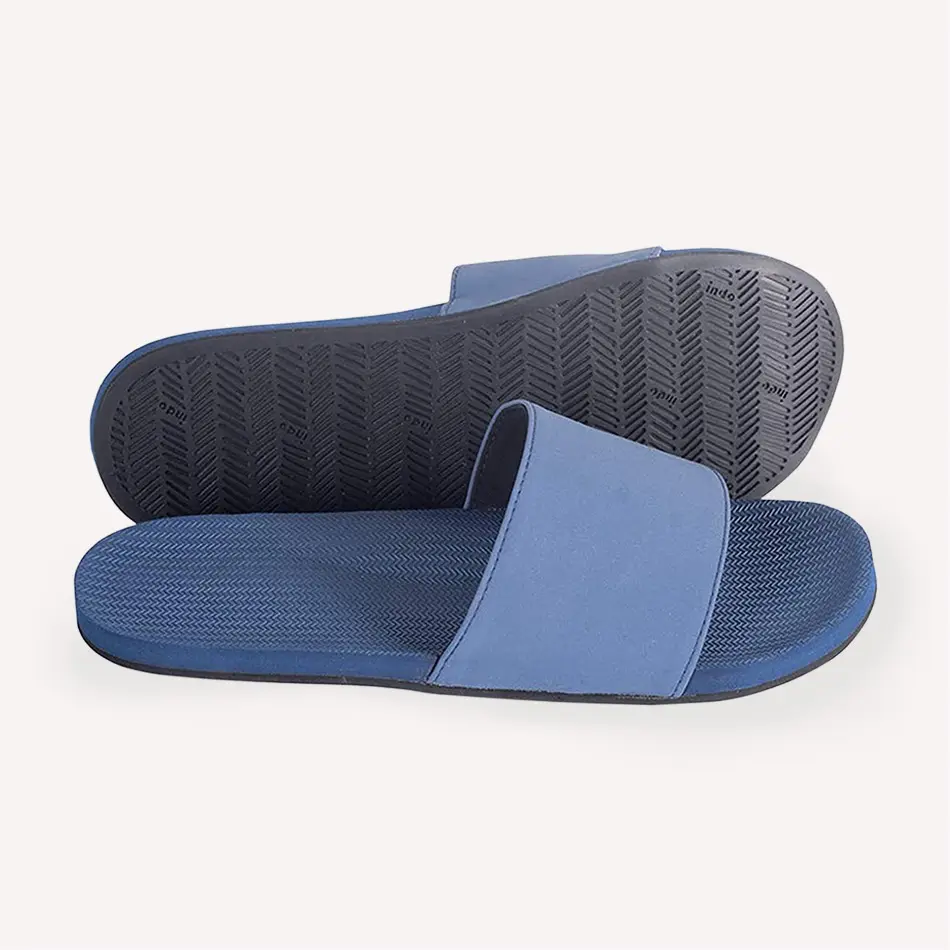
His effort to preserve Bali’s natural environment led him to founding Indosole. They are a Certified B Corporation whose “mission is to become the most responsible footwear company in the world by delivering high-quality environmental footwear for travel, adventure & lifestyle.”
The three things that distinguish Indosole are: 1) their soles are made from recycled tires; 2) they use proprietary ENVRO Fiber which uses little water and all natural dyes for their uppers; and 3) their sandals have ergonomic support with contoured footbeds which hug the foot for good stability.
Okabashi
Okabashi offers vegan flip flops, sandals and clogs. They are a 3rd generation American company that now uses recycled products with a closed-loop process. When you are done with your shoes, you can mail them back to the company and they will recycle them to make more shoes.
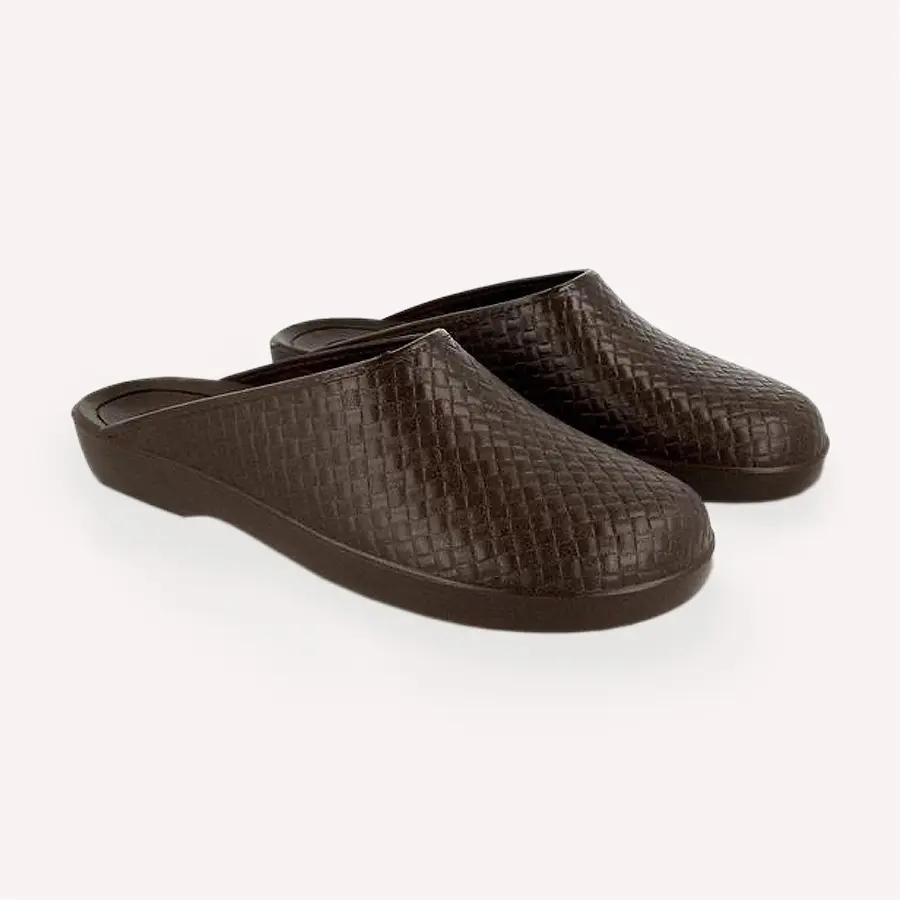
They believe that everyone deserves to have comfortable feet so they focus on finding the right anatomically oriented construction, including toe rests and arch supports to provide comfort and relief for your feet. Fun fact: their shoes are machine washable, and can even be put in your dishwasher.
Native Shoes
Native Shoes is one of the biggest and most established vegan footwear companies, in part because of their commitment to innovation. Founded in 2007, they are PETA approved. Their philosophy is based on respect for both humans and animals through ethical choices – including cruelty-free footwear.
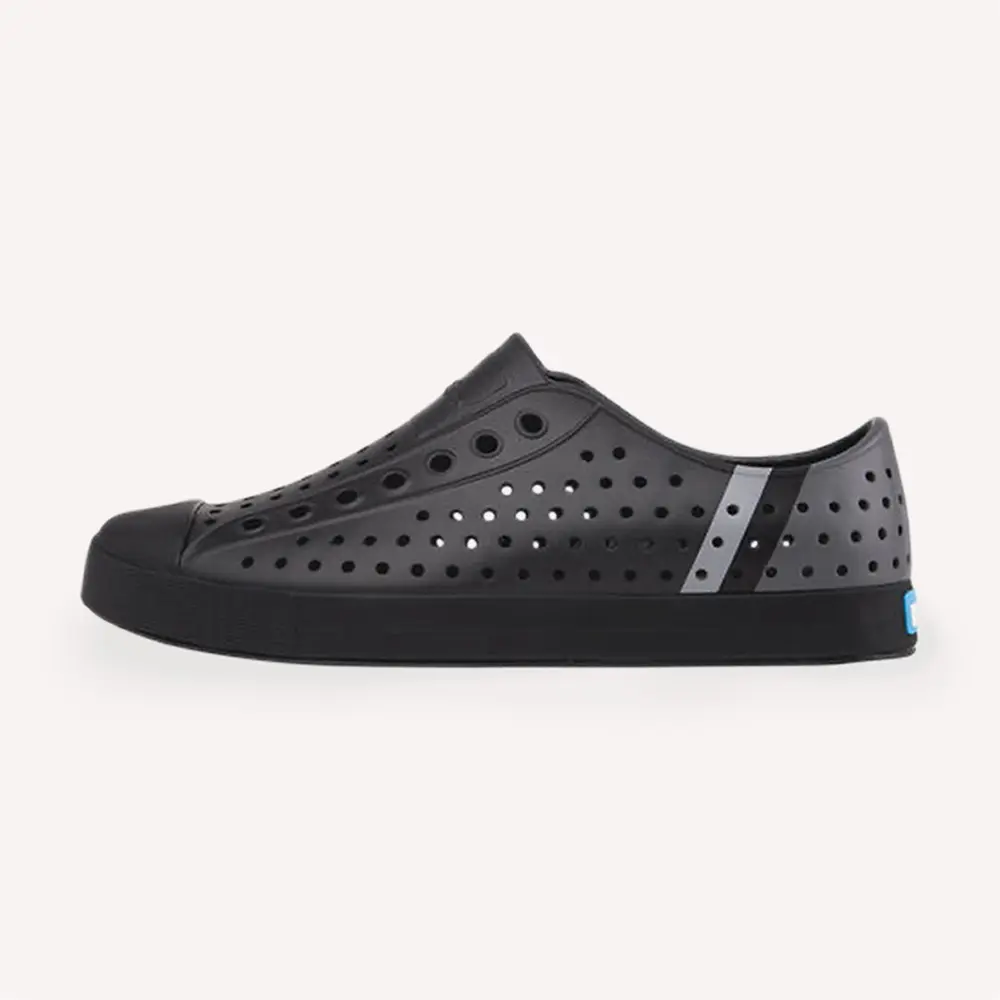
They work to maintain a light environmental footprint during their production stages, such as low-emission manufacturing and shoes made with a foam-injection molding process that minimizes waste.
The company experiments with new material construction including EVA molding and algae. All of their synthetic materials are phthalate- and BPA-free, and don’t contain formaldehyde.
“Live Lightly™, our purpose in both footwear and philosophy, is a sentiment passed along from soul to sole since 2009.
Through our simple formula of innovation, sustainability, originality, and the key ingredient, lightness, we strive to simplify our day, beautify our environment and lighten our carbon footprint on the world.”
Vegan Athletic Shoes
There are many brands of
Other well-known sneaker brands that offer vegan options are Saucony and Brooks (who offers an entire line of vegan shoes in styles and construction to fit every foot and need). Lesser known, but still strong vegan brands are:
On
On is a Swedish company that offers performance running and trail running shoes for serious athletes. Their patented Cloud Tec® technology is engineered to deliver a soft landing followed by an explosive take-off or spring – softness and propulsion in the same shoe.
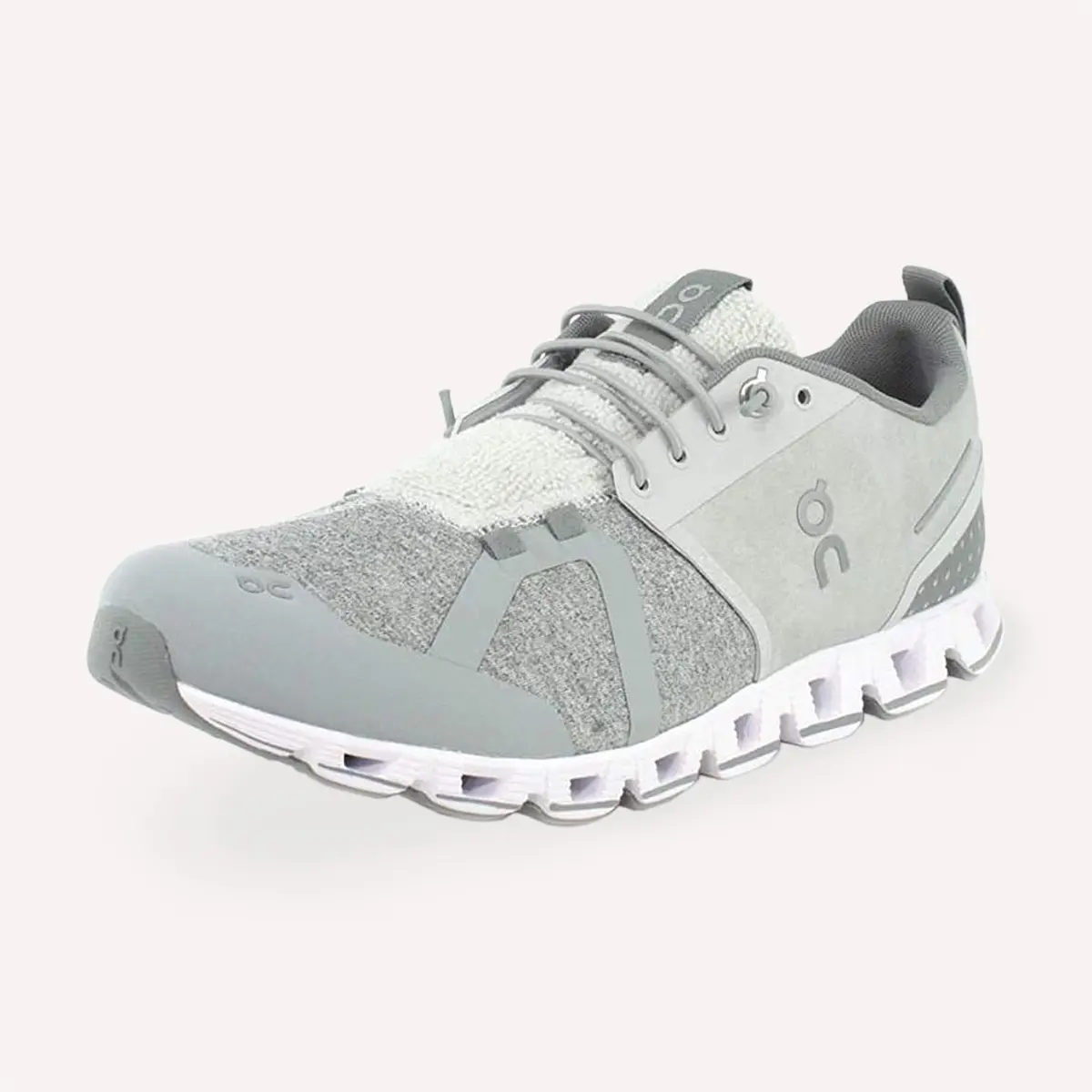
On has done something revolutionary: their Cyclon shoes, made from castor beans, are available by subscription only. You don’t actually own the shoes, but pay a monthly fee.
Inov-8
Inov-8 offers shoes for running, hiking and training. They have pioneered a super-thin (one atom thick) carbon sheet known as graphene that is 200 times stronger than steel, yet light and flexible. This product is incorporated into their soles.
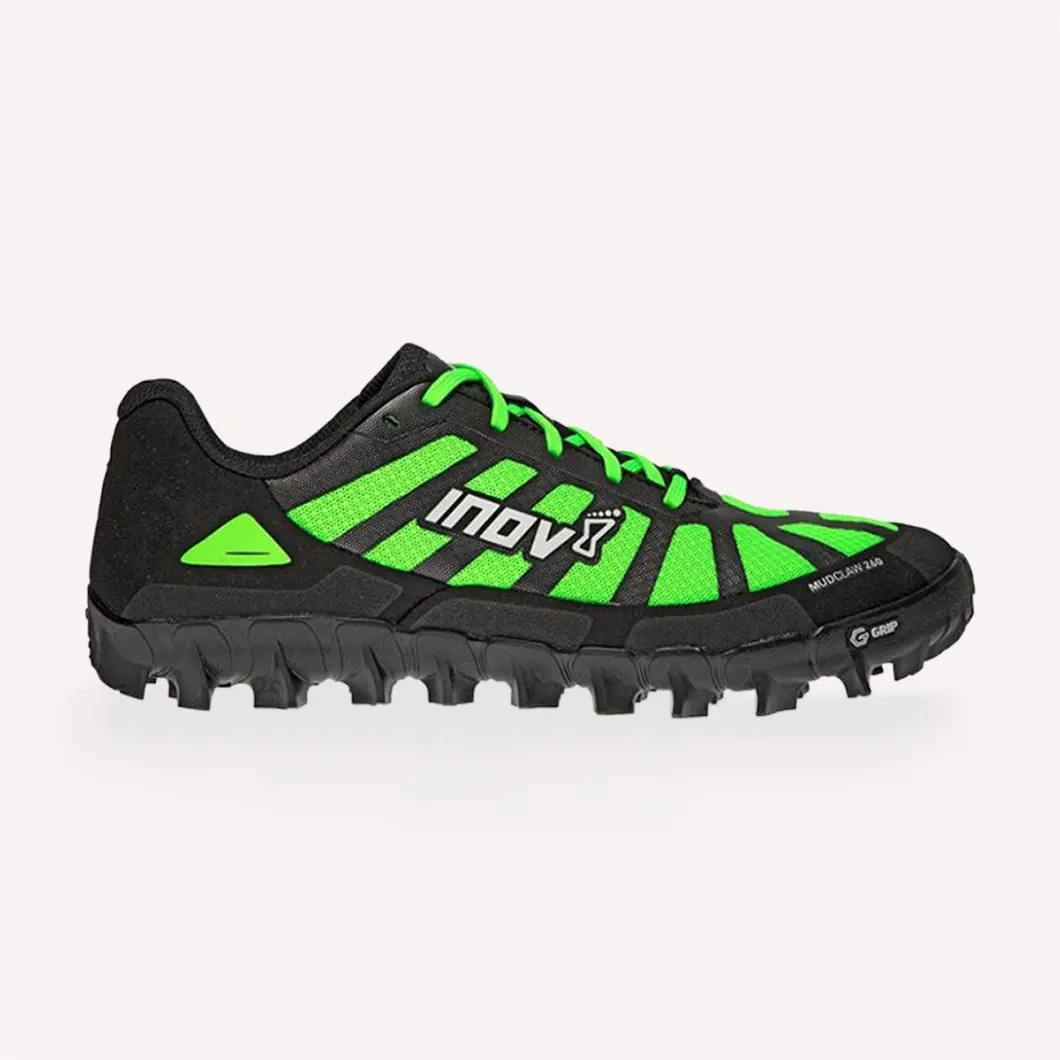
You no longer have to choose between sticky rubber, which doesn’t wear well but is great for wet and sweaty conditions, or harder rubber that’s durable, yet isn’t as grippy. Their uppers are vegan, so you get performance for every condition, while still maintaining your vegan values.
Veja
Veja is a French luxury sneaker brand that uses corn leather for their vegan
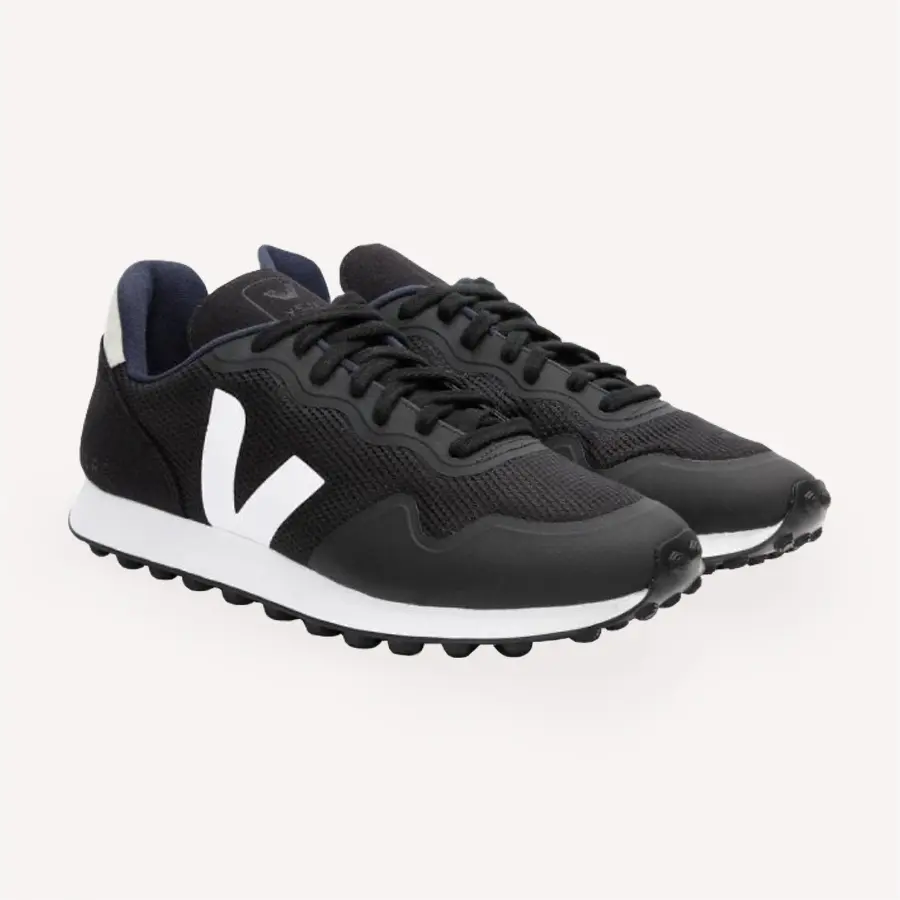
They make ecological
Vegan Boots
If you thought that work boots had to be made out of leather, you would have been wrong. While they have traditionally been leather, due to demand, there are now vegan options.
Because the interest in vegan footwear has grown so dramatically, both Doc Marten and Timberland have come out with vegan versions of their classic boots.
Timberland
Timberland has created a premium fabric boot using canvas on the outside, recycled nylon for laces, polyester lining on the interior and lugged rubber for the sole.
While their boots aren’t vegan-certified (the glue composition isn’t specified), they are leather-free, durable and waterproof, if heavy (they weigh about 2 pounds).
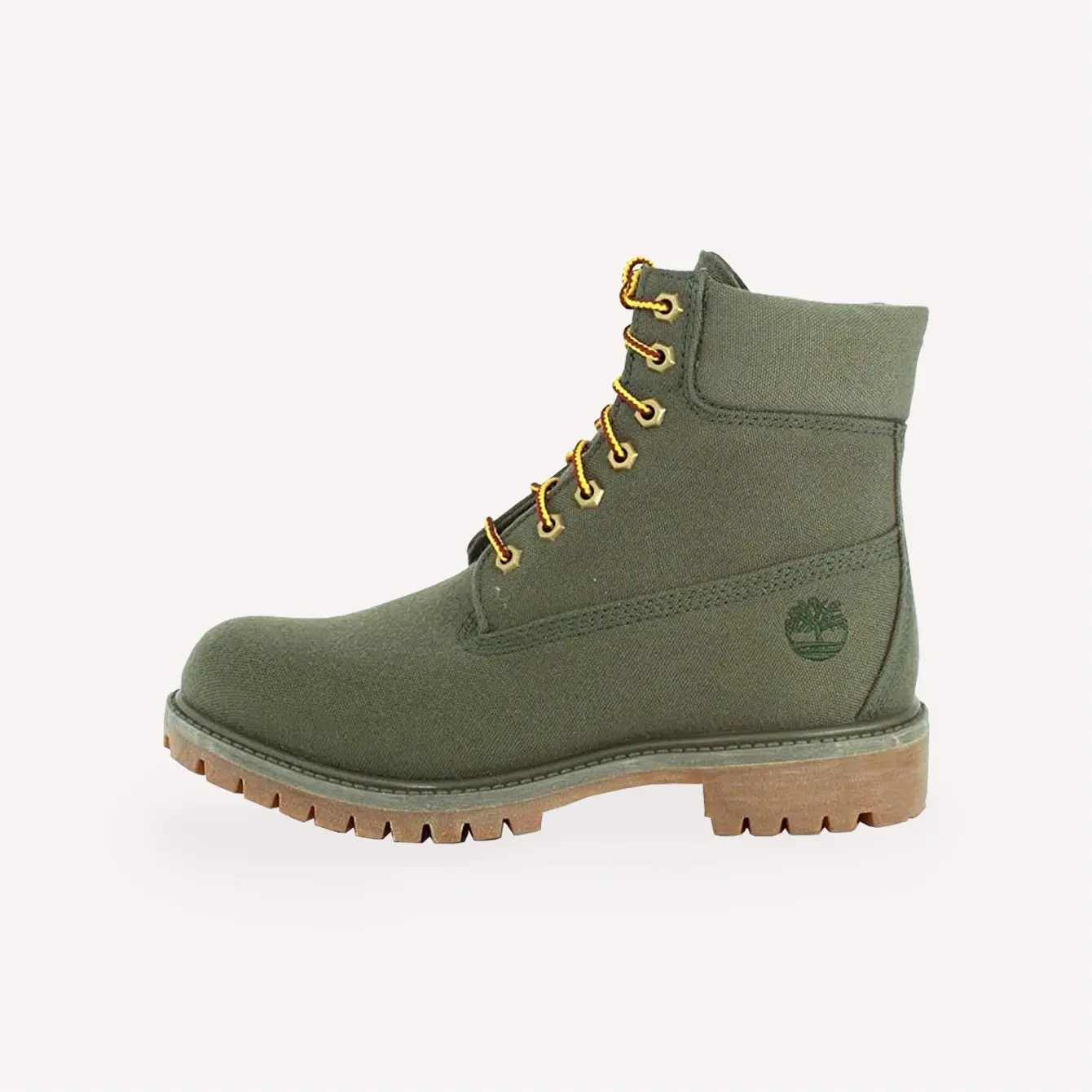
The company states: “At Timberland, we’re known for operating our business responsibly – through environmental stewardship, fair labor practices, and the ethical treatment of animals.
Though premium leather footwear is what we’re famous for, we also offer a variety of cotton, canvas and synthetic footwear options.” Their fabrications include recycled plastic bottles and rubber.
Doc Marten
Doc Marten has introduced a number of vegan options. Their Vegan 1460 boot is the counterpart to their iconic leather combat boot, but made without any animal products. They provide excellent support for your foot and ankle.
The company’s profits have increased 70% since the introduction of this vegan option.
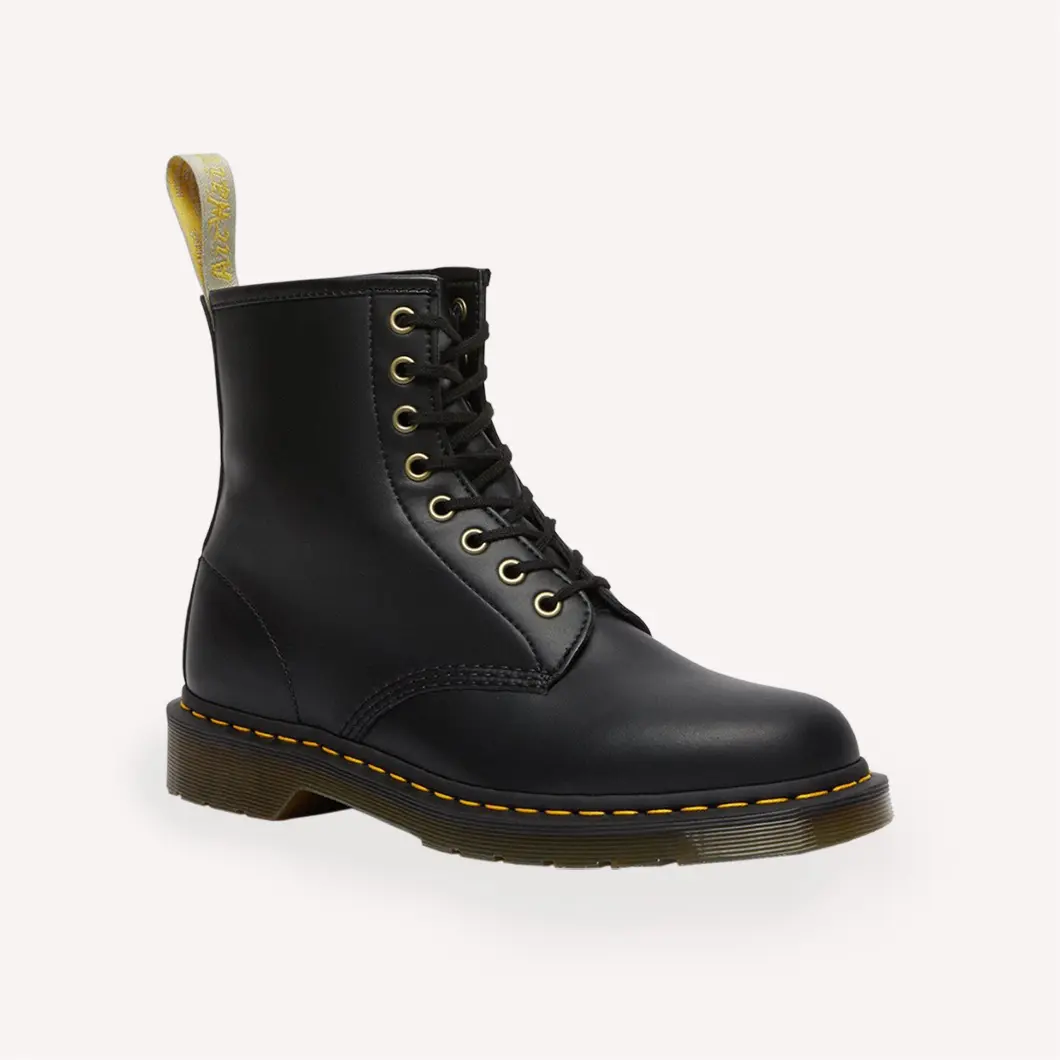
The company states that you should: “Never compromise. Our vegan shoe collection might have lost the leather, but it still has all the attitude. Tough, durable and loaded with instantly recognizable Docs DNA, our vegan range is Docs through and through.”
Ethical Wares
Ethical Wares produces vegan safety certified boots, as well as casual boots, chukkas, and Timberland look-alikes, hiking and walking boots and dancing shoes.
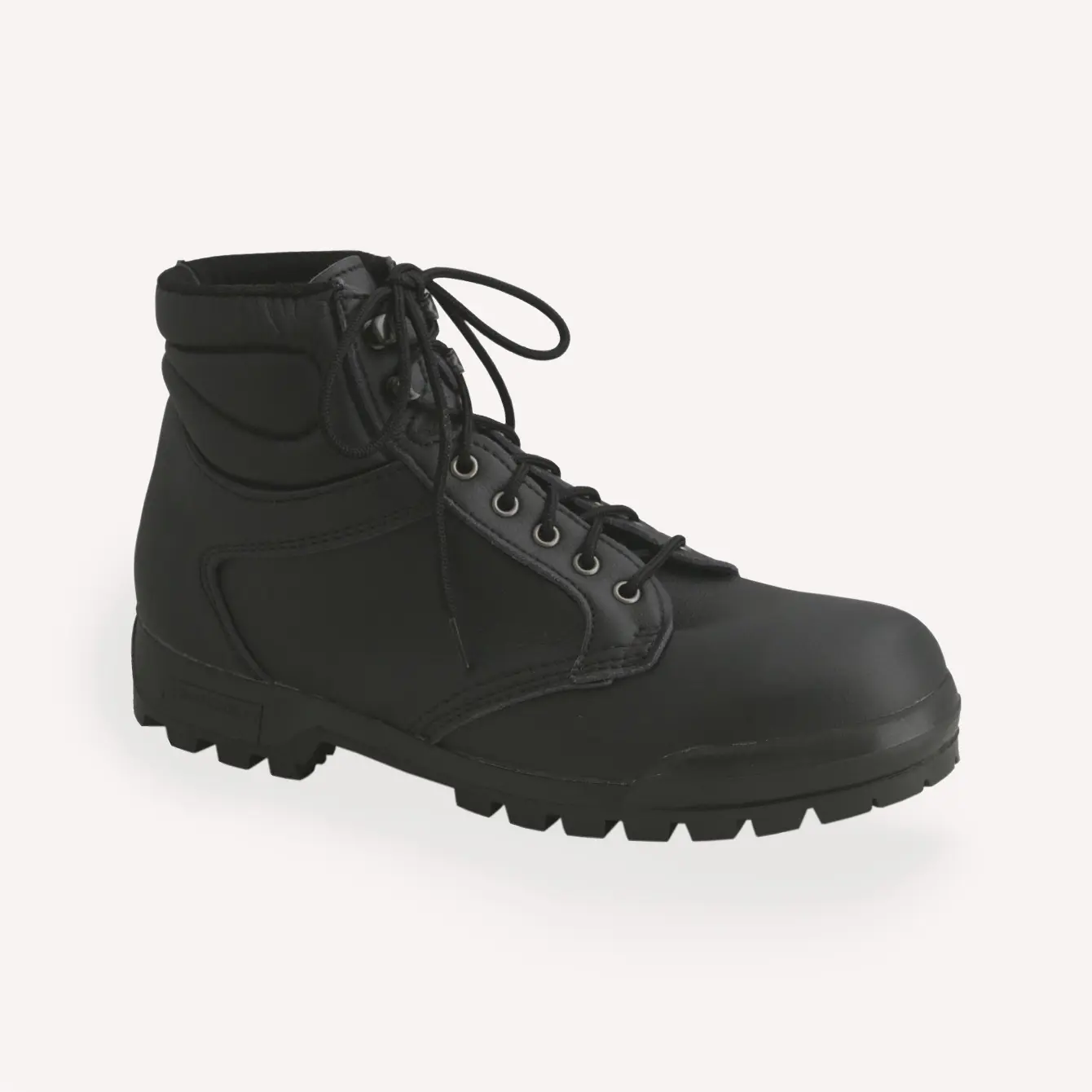
Their chainsaw and safety boot styles comply with European Safety Standards by being antistatic, non-slip, steel toe capped, heat resistant, shock absorbent; abrasion, hydrocarbon, oil and solvent resistant, and have a puncture-proof midsole. Safety now comes in a vegan option.
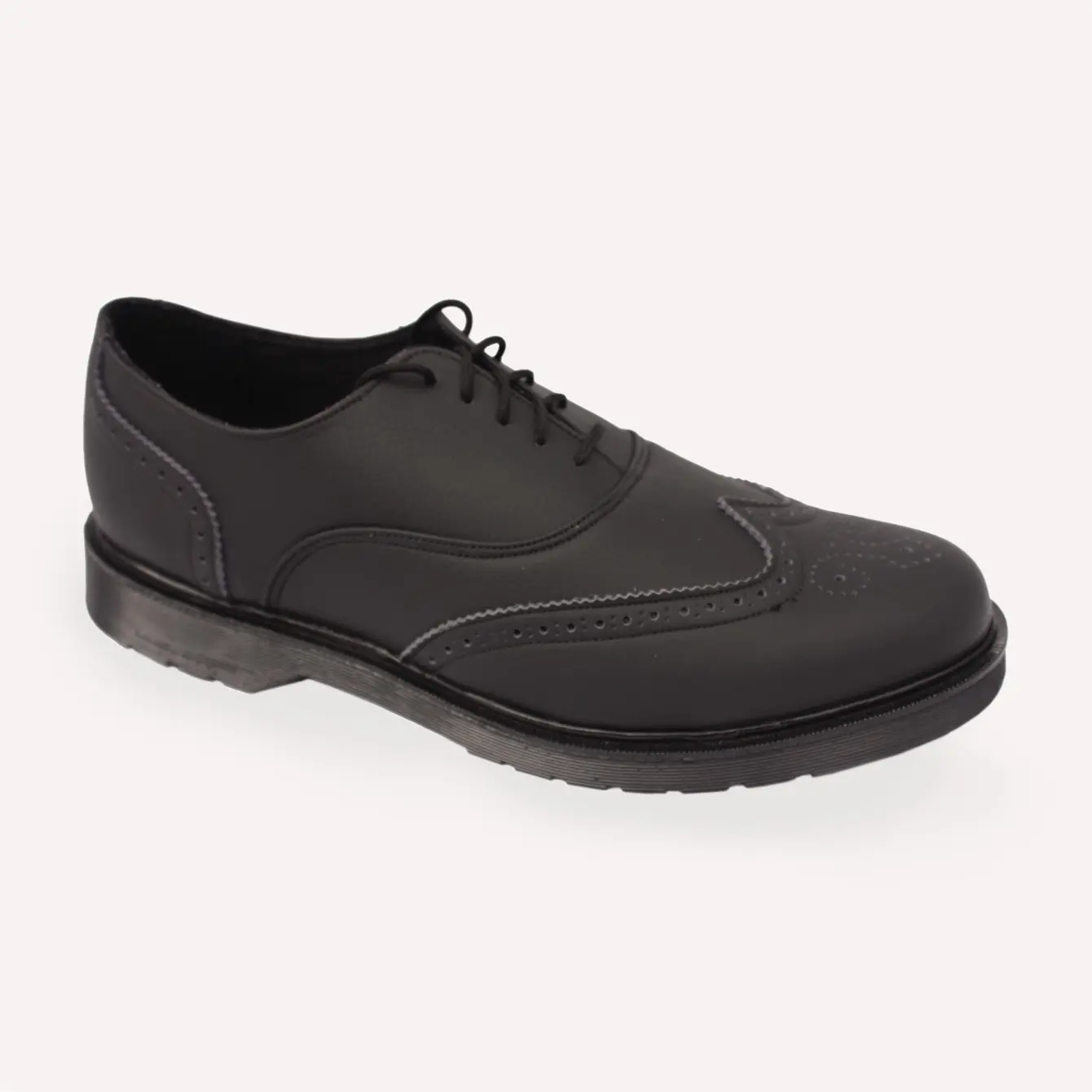
They are a Fair Trade company that produces every style of shoe from dress and casual shoes to punk boots,
Nae
Nae stands for “No Animal Exploitation”. This Portuguese company focuses on both veganism and environmentalism. They use sustainable and recycled materials such as Piñatex™ pineapple leather, cork, plastic bottles and automotive airbags as much as possible.
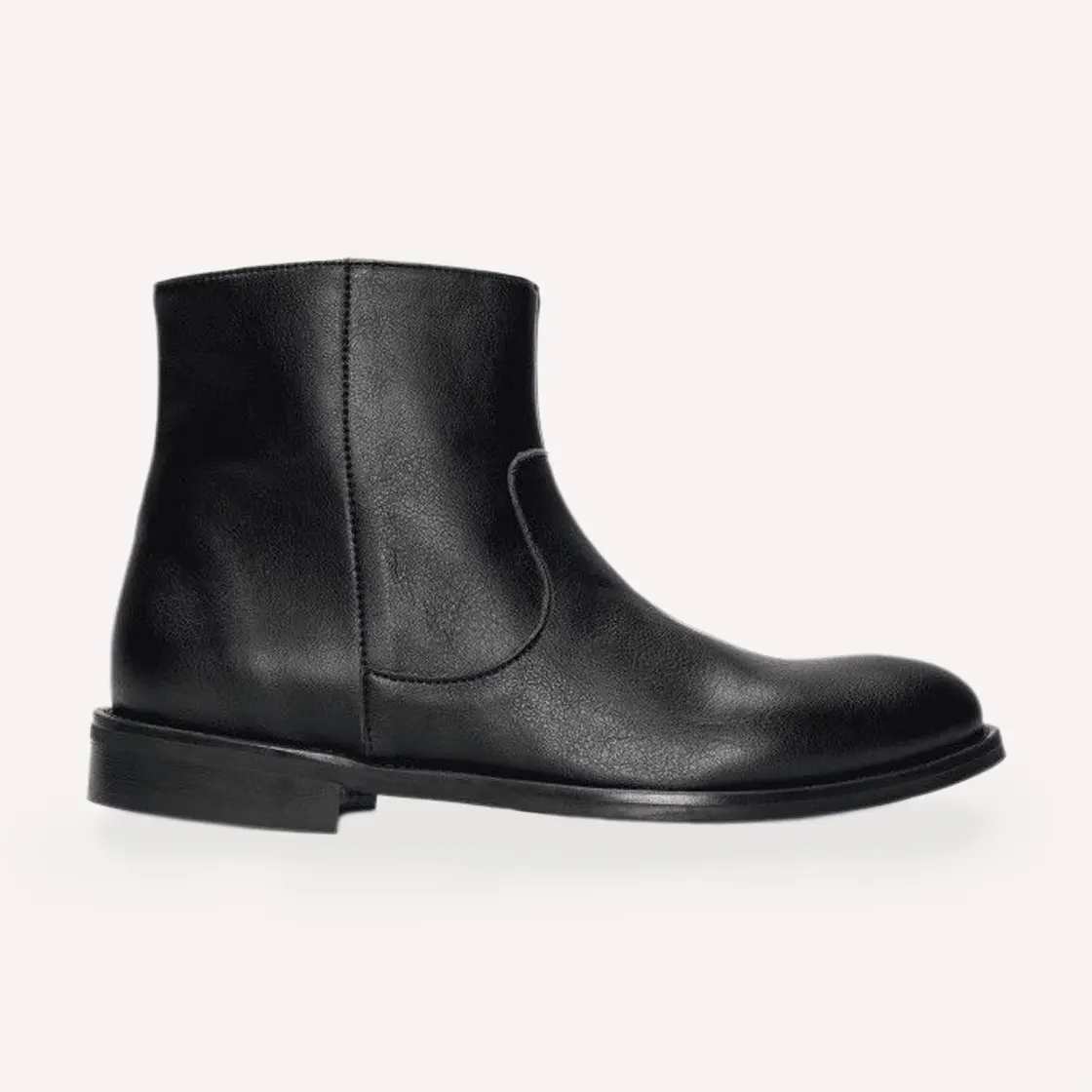
They offer several boots and casual shoe styles that are anti-bacterial, anti-microbial, and hypoallergenic. This is an extremely ethical company focused on sustainability and humanitarianism.
Will’s Vegan Shoes
Will’s Vegan Shoes creates sustainable, ethical, vegan fashion. Their styles include work and hiking boots, trainers and

They use carbon-neutral production and supply chains and invest in renewable energy projects. They are registered with the Vegan Society.
Vegan Dress Shoes
The most notable, and diverse, segment of the vegan shoe market is the fashion and dress category. These are the traditional shoes that are closely affiliated with leather uppers and soles.
Today, there is a plethora of vegan brands that provide stylish, durable, and breathable options that look and feel like leather. Most of these companies produce a full range of shoes including casual styles, boots and
Ahinsa
Ahinsa is a Brazilian company founded by a physiotherapist whose mission is to create “a more conscious society, one day completely free of cruelty.”
Taking their name from the Hindu word for “respect for all living things and avoidance of violence toward others,” not only are their materials eco-friendly and animal-free, but also ethical.
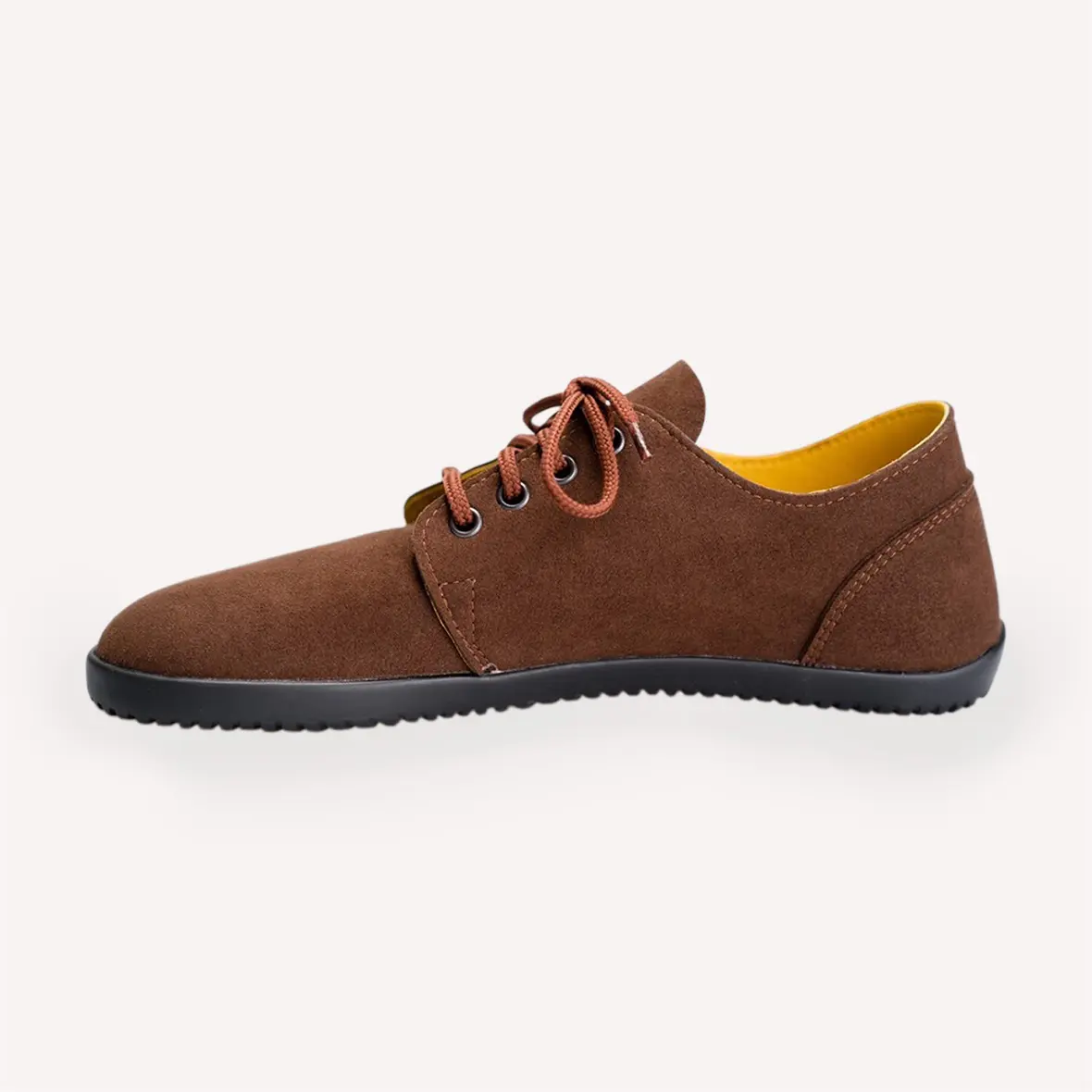
They offer a complete line of dress shoes, boots, fancy
Bourgeois Boheme
Bourgeois Boheme is one of the most established vegan dress brands and PETA certified. They combine durable construction with innovative and eco-friendly materials such as: Piñatex™ pineapple leather, PVC-free faux leather, cork and vegan microfiber.
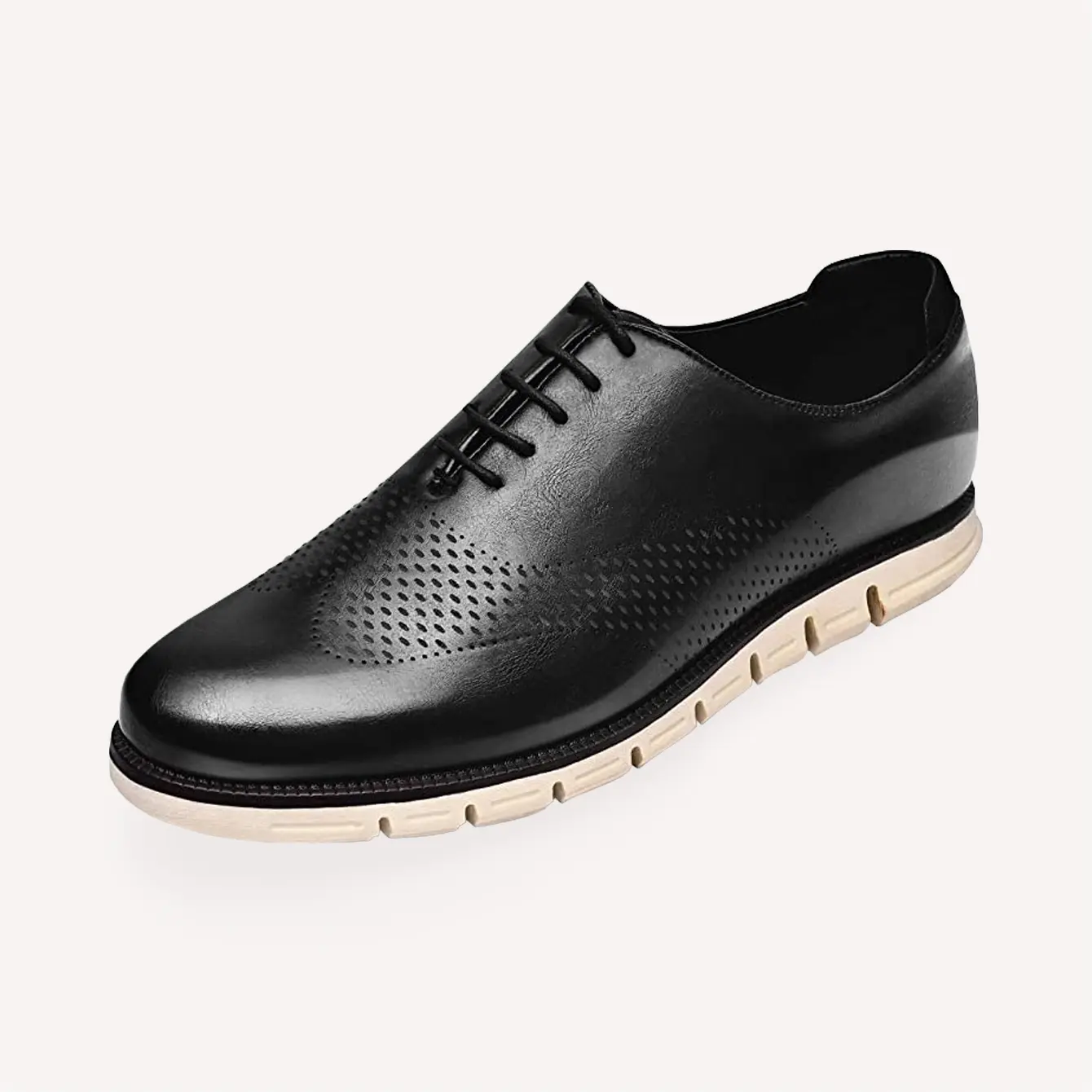
They also use plant-based polymers that are derived from natural and renewable sources such as grains and seeds rather than relying on petrochemicals.
Their slogan is “Vegan and Proud”. The company was founded by a retired podiatrist in 2005, and while London based, their production is in Portugal.
Friendship Shoes
Friendship Shoes is another PETA approved company based in London. They offer classic and timeless British styles that are fashionable and meticulously crafted.
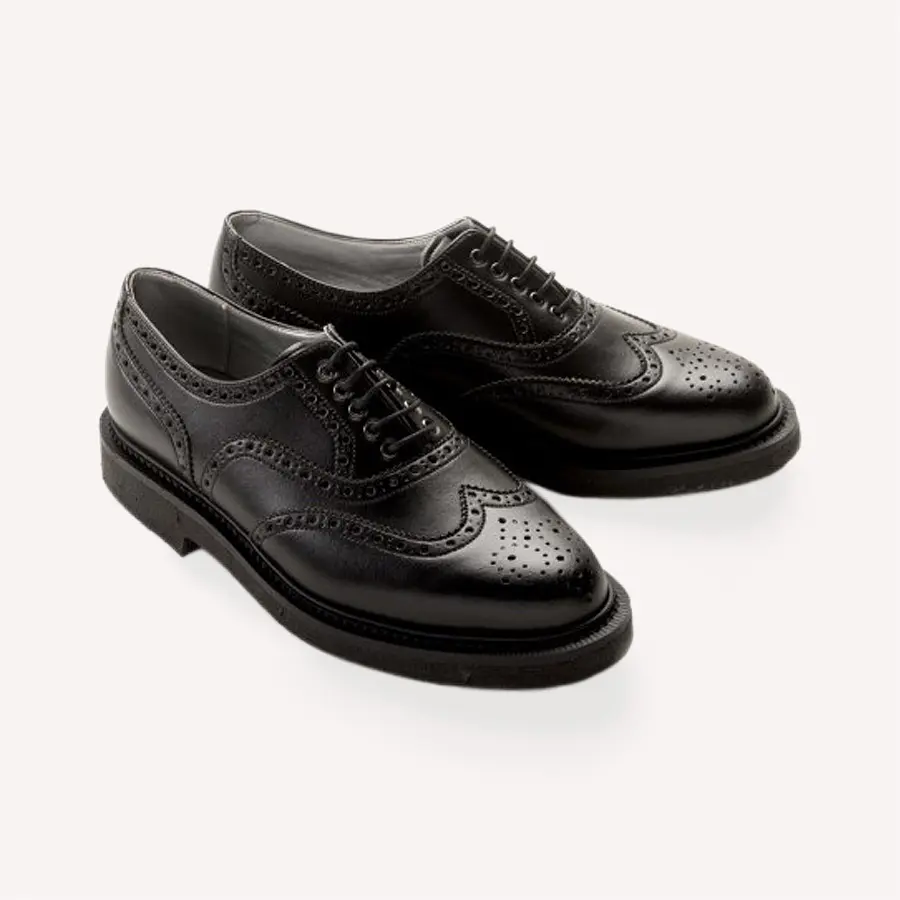
They offer non-seasonal and gender-fluid shoes and include metallic tones of copper and silver. Their shoes come with a Goodyear welted sole so they are not only comfortable and long lasting, but the sole and heel are repairable.
Matt & Nat
Matt & Nat takes its name from materials and nature. They started as a vegan handbag company, but expanded to include shoes. Founded in 1995 and based in Montreal, their shoes are made in Chinese factories with whom they have a longstanding relationship that guarantees ethical conditions.
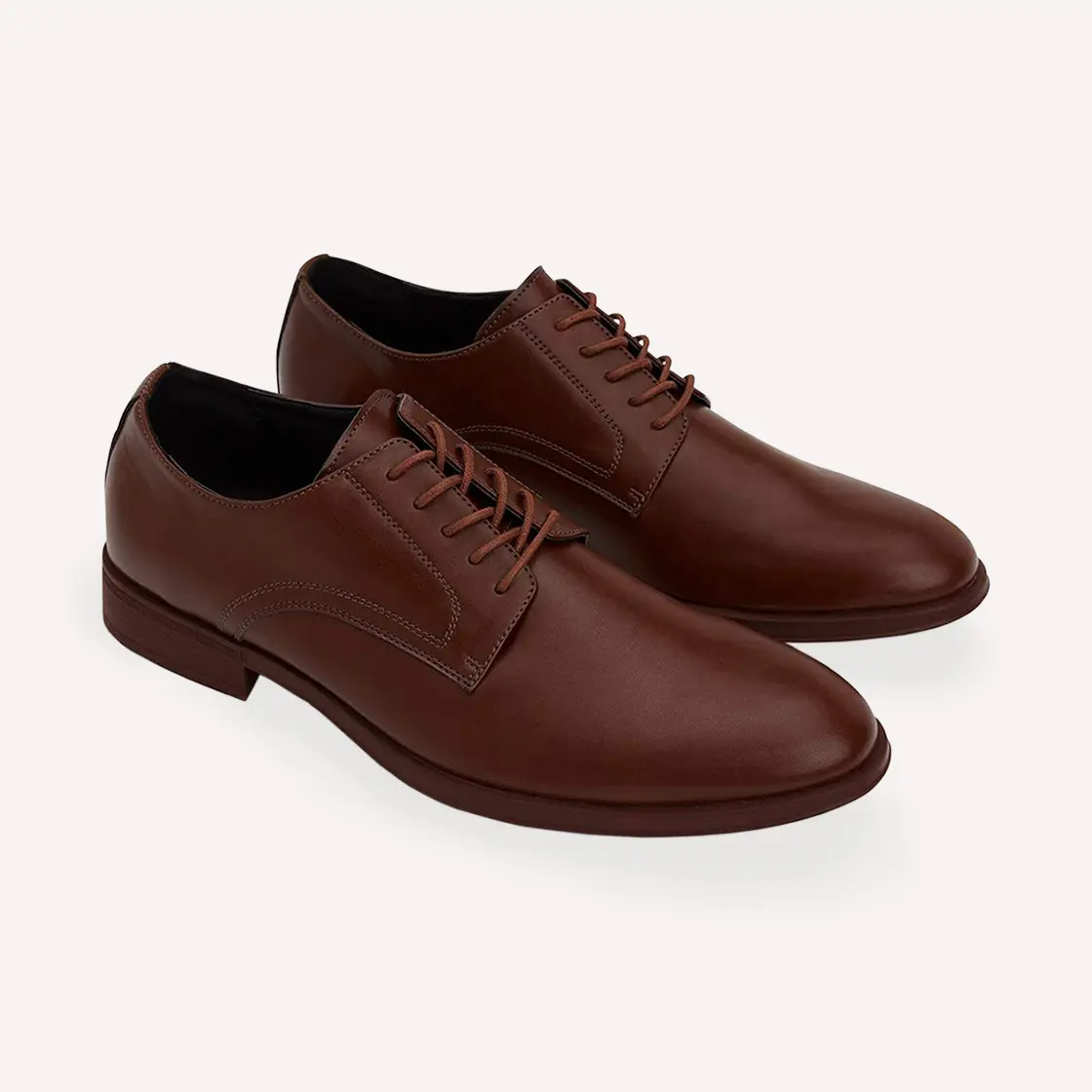
Their original goals were to enhance the “humanity, creativity, and positivity found in all of us.” They rely heavily on recycled materials such as nylon, rubber and cork.
Nemanti
Nemanti Milano is an Italian luxury brand of vegan shoes and PETA approved. They even make bespoke (made to measure) hand-crafted shoes.
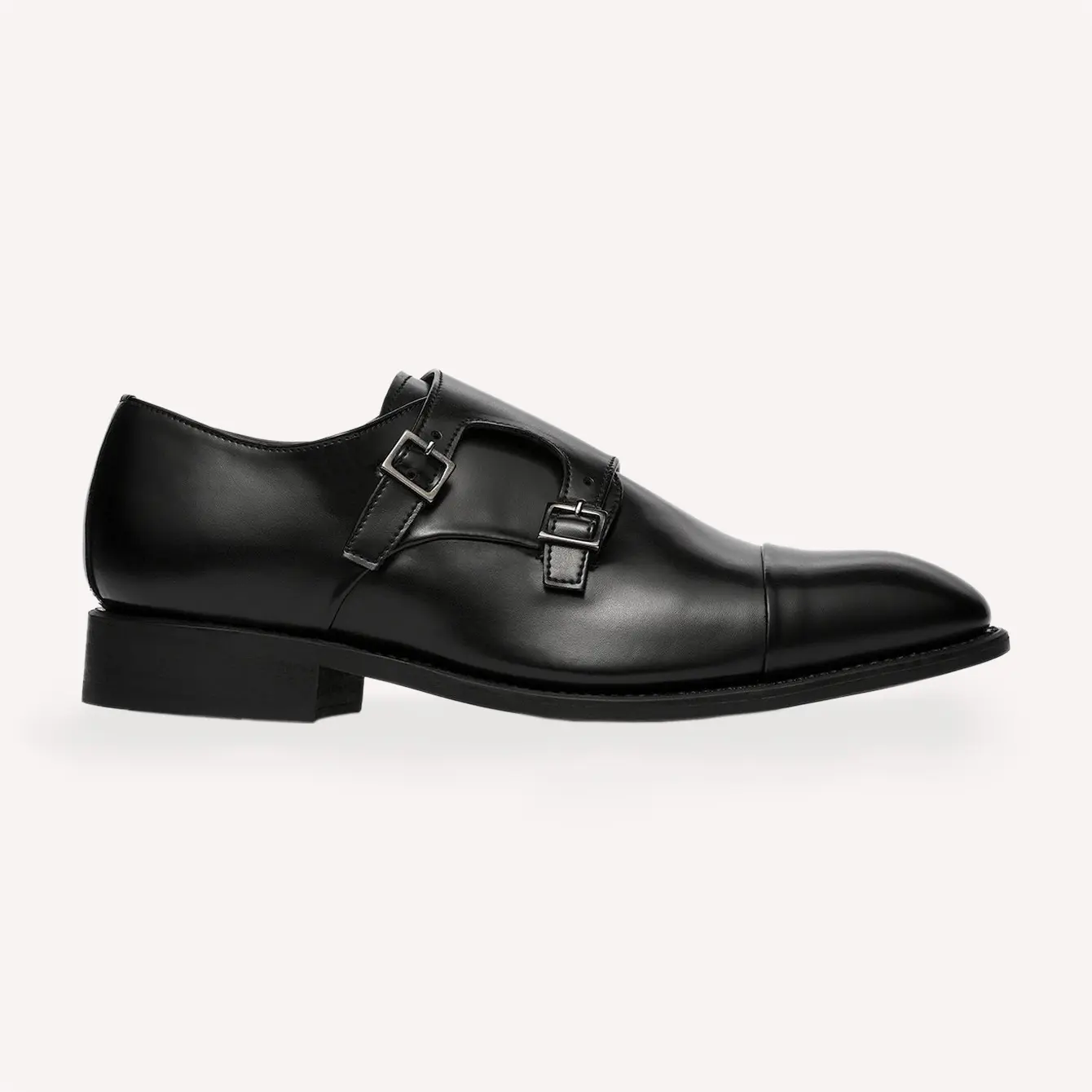
Company watchwords include: respect, imagination and craftsmanship. All materials are cruelty-free and the plant tissue they use is often a by-product of recycling or reuse. All shoes are made in Italy in the two artisanal districts of Marchigiano and Parabiago.
They use traditional linen, waxed cotton and wood, as well as more innovative materials such as Alcantara and faux leather. The faux leather is derived from waste grain production, with no new cultivation required.
Their pellemela faux leather is made from discarded apple cores and is 100% cellulose pure.
Noah
Noah is another Italian vegan shoe brand that offers a full range of styles from elegant dress shoes to
Their stated reasons for choosing to produce vegan are: to protect animals so leather is excluded from every step of production, the importance of the environment so only sustainable and environmentally friendly materials with a high percentage of recycled fibers are used, and their customer’s health so all shoes are made from toxin-free and hypoallergenic materials.
They even offer a line of organic shoes.

Their concern for the shoe’s material content doesn’t limit their range, creativity or quality craftsmanship. Their shoes are made by hand in small batches. They prioritize conscious consumption and support sustainable shopping.
Novacas
Novacas is also made in Italy. They are the house brand of Mooshoes. The name actually translates to No Cow in Spanish.
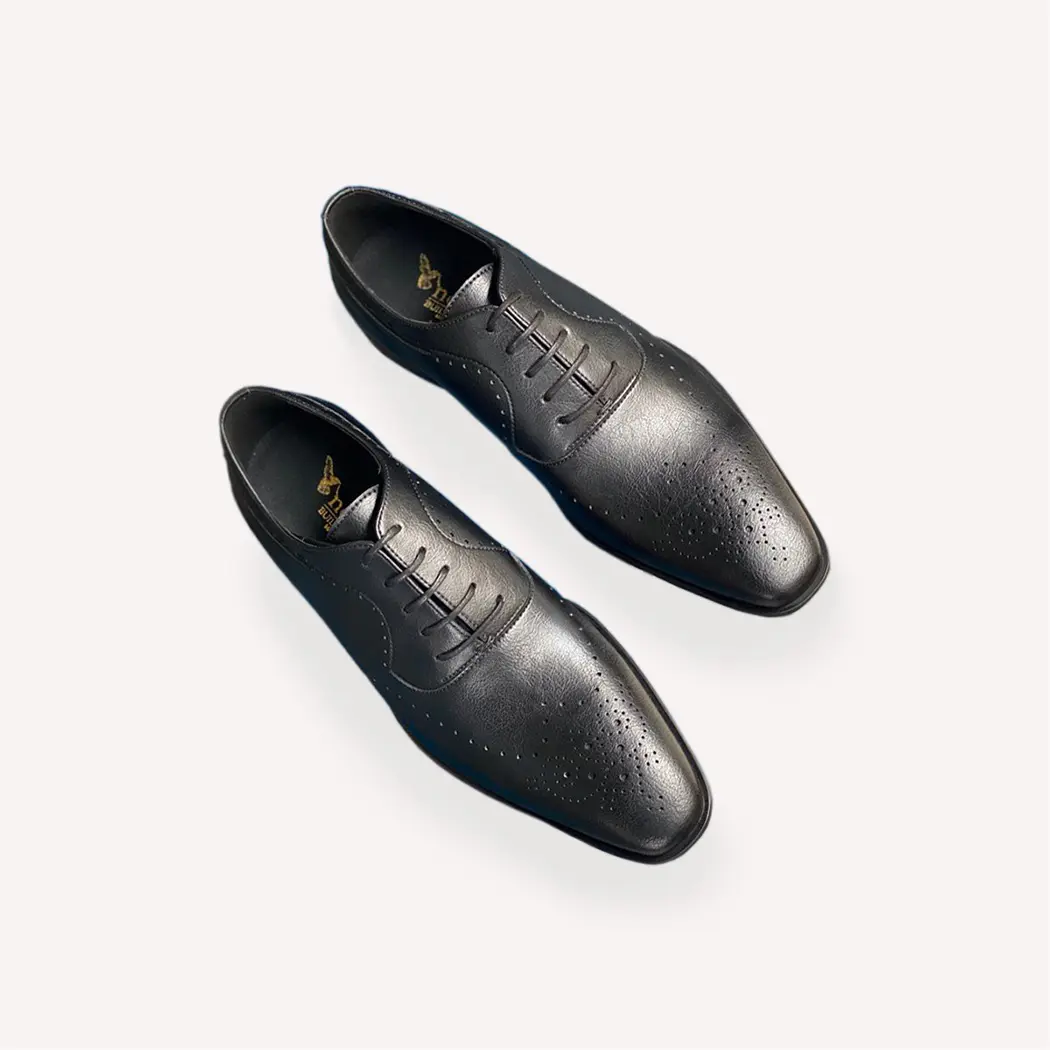
Their shoes are produced with breathable, comfortable, and non-toxic microfibers and no PVC. Their products are manufactured in Portugal under fair working conditions with high environmental standards.
Tastemaker
Tastemaker makes footwear basics, minus the cruelty. Men’s choices include boots, dress shoes, casual
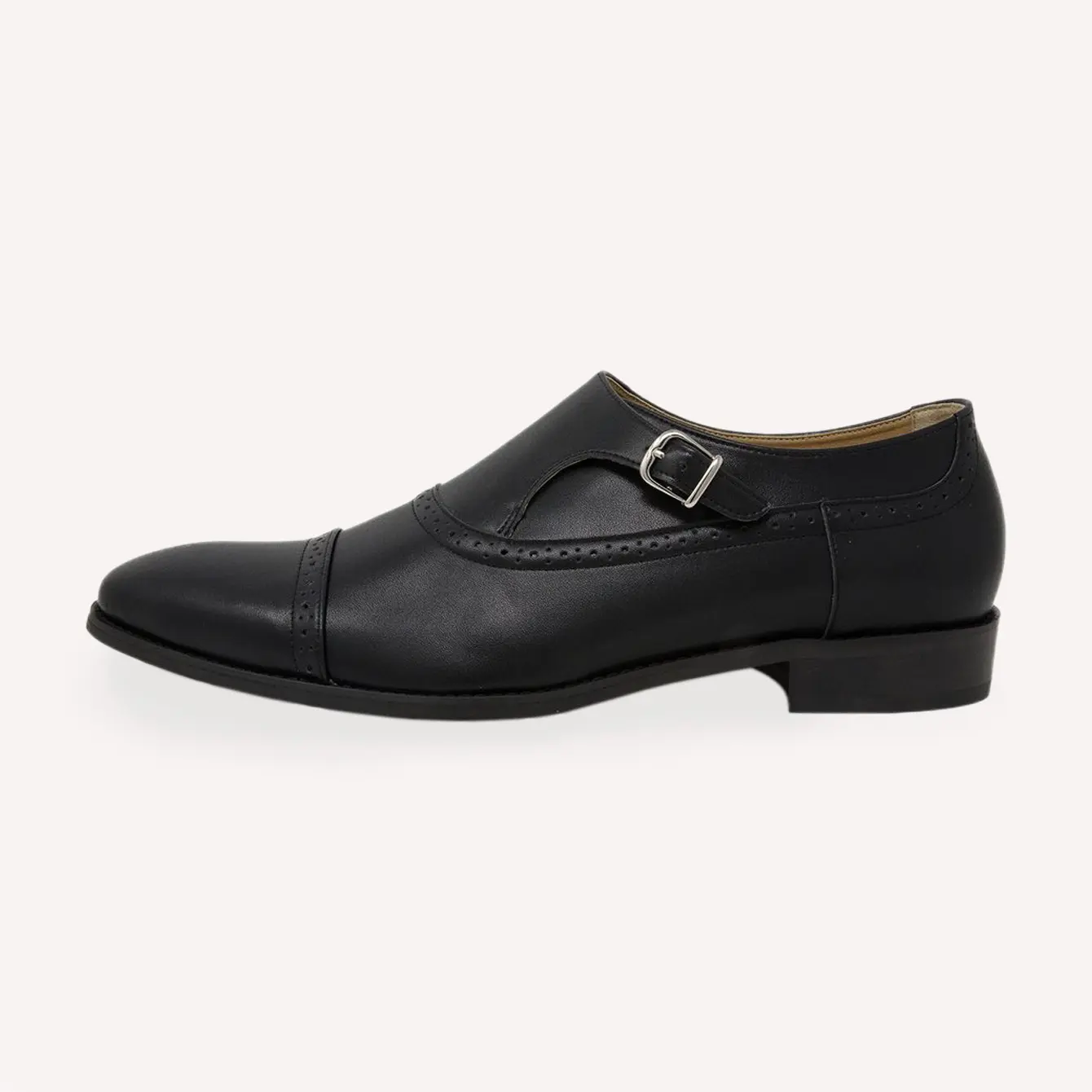
Their comfort shoe line is specifically designed to handle the strain of workday grind.
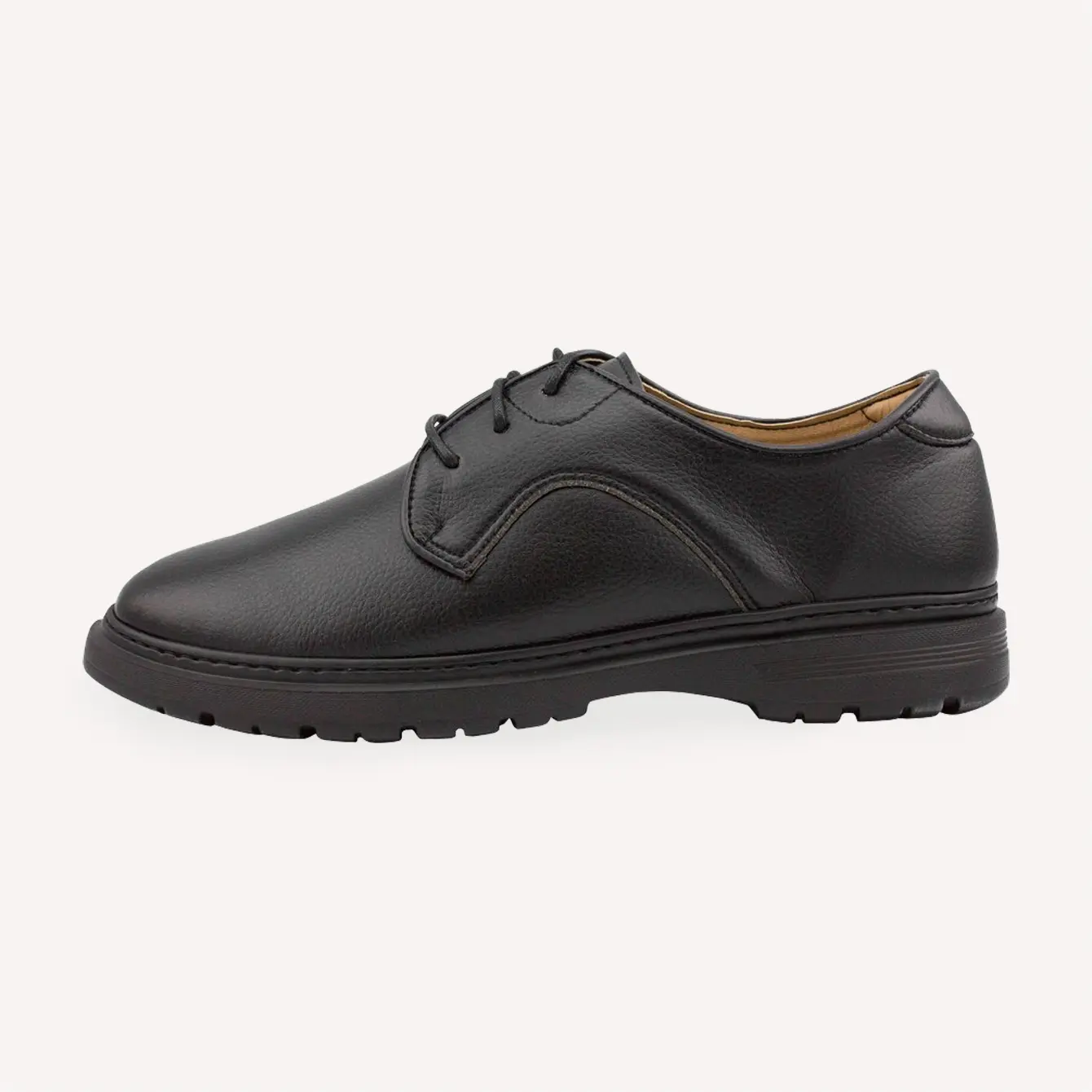
They use 100% vegan, high-quality raw materials. Their vegan leather and suede are microfiber, coated with PU. Their ethical factories are located in Portugal, Greece and Taiwan where each shoe is hand-made by experienced artisans. They are PETA approved.
Overall, the company emphasizes their durability and in addition to being scratch- and water-resistant, their padded insoles are designed to hold up to extended use. You shouldn’t see peeling, cracking or flaking for more than ten years.
The Future of Vegan Footwear
As the demand for vegan footwear has grown, the quality, innovation and style choices have grown exponentially. It is hard to determine vegan from leather, both in looks and wearability. The days of hot, non-breathable plastic that is ecologically and foot unfriendly are long gone.
In its place are fabrics and materials that recycle waste products such as pineapple leaves and apple cores, polluting products such as plastic bottles and rubber tires, and plant-based fabrics made out of corn and castor beans.
This is still a growth area where lab grown materials out of algae, mushrooms and kelp may soon find their way onto our shoe racks.
All of this has been created with an emphasis on anatomically correct shoes. The people who want to save the planet also want to save our feet. Today, anti-microbial, anti-bacterial, odor-free, breathable faux leathers and suedes are the norm.
They are durable, flexible and sustainable. High quality, hand-made, even bespoke, vegan shoes are available in all the classic styles, as well as the latest fashions. There is a vegan shoe to fit every size, need and desire.
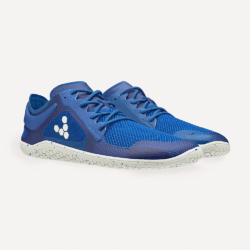
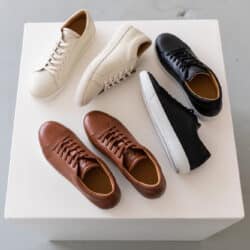
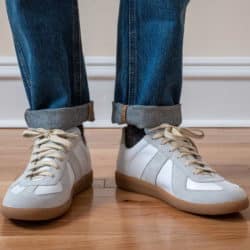
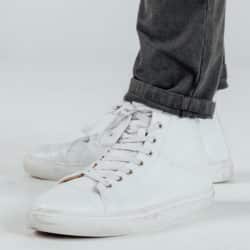


Hello Larry,
I made a concerted effort to find the vegan shoe brands that avoided PVC type products that aren’t breathable and wouldn’t hold up. I focused on innovative materials that were breathable from established companies who were well regarded. Of course vegan might not act exactly like leather, even with companies such as Timberland and Doc Marten. I would like to know if you have tried any of these brands and had negative experiences and what went wrong.
My big complaint is that you seem to be more interested in Style and getting people to Buy vegan shoes than “What’s a GOOD, well-made vegan shoe? The best ones out there.” I cannot tell you how many bad reviews I have read on vegan shoes across many different websites! Vegan shoes don’t come across very well. And the complaints are always: The shoe doesn’t breathe – it feels hot to wear. Or this shoe is cheaply made and fell apart soon after I bought them. Or It has a chemical smell. Or it is hard and doesn’t flex with my feet. And finally – the shoe scuffs easily and no shoes dye or polish can get rid of the scuff marks.
Could you PLEASE start reviewing the various brands of vegan shoes and tell us which ones are the Best and meet all the criteria I mentioned above? Yes I want vegan shoes – but I do not want to waste my money on poorly made things …. Just Because They are Vegan. As the writer here – well, I think you should do a True comparison of the many brands to tell us which ones are truly, actually, really a DECENT pair of shoes. Just being vegan isn’t enough, you know.
You can’t expect vegan leather (which is basically rubber) to perform like real leather. It sounds like you’re looking for a real leather shoe. Vegans aren’t buying vegan shoes because they’re technically better. They’re buying them because they’re vegan.